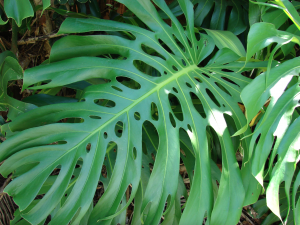Cats are tricky and inquisitive creatures, so it may not be enough to just put your houseplant in a room that your cat doesn’t usually have access to. You may need to get rid of them entirely, but in the end, it’s what’s best to keep your kitty friend safe.
When we have a kitty friend, we obviously want to do everything we can to protect them and keep them safe. However, there are often some things that slip under the radar, or that we might not know about. Unfortunately, one of these things that can go unnoticed is the toxicity that many houseplants can present as an issue for cats.
We may see our houseplants as harmless and pretty greenery within our homes, but for cats, some varieties can cause serious illness, or even be fatal.
With this in mind, let’s take a look at the seven houseplants that you’ll definitely want to be removed if you have (or may have in the future) a kitty friend living with you at home.
1. Lilies
Did you know there are over 90 different species of lily? There’s the peace lily, Asiatic lily, Lily of the Valley, and the list goes on… They’re all very different in appearance, however, they all have one thing in common: they’re extremely toxic to cats. If your cat ingests lily pollen (or in some cases even comes into contact with the leaves or flowers), they could be in some serious medical trouble. Lilies can even cause death! Before you bring a cat home, make sure your house is totally lily-free.
2. Jade plants
Jade plants (otherwise known as ‘Money Trees’) are popular amongst those who want a set-and-forget plant. They’re succulents, so are extremely low maintenance and require little attention or care. Unfortunately, if your cat starts to pay attention to them, then this could be a major issue, as Jade plants are poisonous to felines.
3. Tomatoes
Many of us may be venturing into the world of growing our own vegetables these days by endeavoring to create a little windowsill garden. If tomatoes are included in your garden, then you’ll definitely want to supervise your cat (or, even better, not plant tomatoes at all). Although the actual tomato flesh is not poisonous to cats, their nightshade leaves and stems are, so you’ll definitely want to avoid giving these to your cat, or even letting them have access to your compost bin if they may be inside!
4. Hyacinths
Hyacinths are gorgeous and sweet-smelling flowers that are native to the eastern Mediterranean. Some of their close relatives include water hyacinths and tulips. These flowers are extremely beautiful, meaning they’re often given as gifts, but if you have a kitty friend at home, you’ll want to keep these at your office desk rather than your kitchen table. These bulb flowers contain alkaloids that can be dangerous for your cat and could land them in the veterinarian’s office if ingested.
5.Mistletoe
Kissing under the Mistletoe at Christmas might be an age-old tradition, but you definitely don’t want to be letting your cat kiss any Mistletoe. These plants can lead to serious health issues for your cat, including cardiovascular shutdown. Other holiday plants like amaryllis should also be kept out of your cat’s way.
6. Aloe Vera
Aloe Vera may have excellent medicinal properties for humans, but it provides anything but for cats. Although we may use it to ease sunburn and indigestion, if cats ingest it they can experience lethargy, vomiting, and diarrhea, warranting an immediate trip to the vet’s office.
7. Monstera

Monstera Deliciosa is an extremely popular houseplant at the moment thanks for their gorgeous and sprawling green foliage. Also referred to as ‘Swiss Cheese Plants’, they’re very low maintenance and tend to grow at a rate of knots if kept in the right conditions. Unfortunately, the insoluble calcium in Monsteras makes them toxic to cats, with symptoms including excessive drooling, swelling of the mouth area, and vomiting if ingested.
Keeping your cat safe from toxic houseplants
It can be a shame having to get rid of houseplants because they’re toxic to your cat, but giving them away to a friend is better than having to take your cat to the vet when it becomes ill. Cats are tricky and inquisitive creatures, so it may not be enough to just put your houseplant in a room that your cat doesn’t usually have access to. You may need to get rid of them entirely, but in the end, it’s what’s best to keep your kitty friend safe.


Join the conversation!